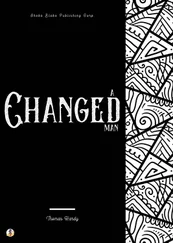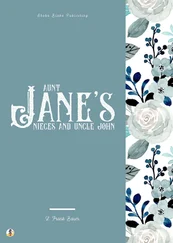Sheba Blake - Americans and Others
Здесь есть возможность читать онлайн «Sheba Blake - Americans and Others» — ознакомительный отрывок электронной книги совершенно бесплатно, а после прочтения отрывка купить полную версию. В некоторых случаях можно слушать аудио, скачать через торрент в формате fb2 и присутствует краткое содержание. Жанр: unrecognised, на английском языке. Описание произведения, (предисловие) а так же отзывы посетителей доступны на портале библиотеки ЛибКат.
- Название:Americans and Others
- Автор:
- Жанр:
- Год:неизвестен
- ISBN:нет данных
- Рейтинг книги:5 / 5. Голосов: 1
-
Избранное:Добавить в избранное
- Отзывы:
-
Ваша оценка:
- 100
- 1
- 2
- 3
- 4
- 5
Americans and Others: краткое содержание, описание и аннотация
Предлагаем к чтению аннотацию, описание, краткое содержание или предисловие (зависит от того, что написал сам автор книги «Americans and Others»). Если вы не нашли необходимую информацию о книге — напишите в комментариях, мы постараемся отыскать её.
Americans and Others — читать онлайн ознакомительный отрывок
Ниже представлен текст книги, разбитый по страницам. Система сохранения места последней прочитанной страницы, позволяет с удобством читать онлайн бесплатно книгу «Americans and Others», без необходимости каждый раз заново искать на чём Вы остановились. Поставьте закладку, и сможете в любой момент перейти на страницу, на которой закончили чтение.
Интервал:
Закладка:
To Christianity is due also the somewhat ribald mirth which has clung for centuries about Saint Peter as gatekeeper of Heaven. We can trace this mirth back to the rude jests of the earliest miracle plays. We see these jests repeated over and over again in the folklore of Latin and Germanic nations. And if we open a comic journal to-day, there is more than a chance that we shall find Saint Peter, key in hand, uttering his time-honoured witticisms. This well-worn situation depends, as a rule, upon that common element of fun-making, the incongruous. Saint Peter invaded by air-ships. Saint Peter outwitting a squad of banner-flying suffragettes. Saint Peter losing his saintly temper over the expansive philanthropy of millionaires. Now and then a bit of true satire, like Mr. Kipling’s “Tomlinson,” conveys its deeper lesson to humanity. A recently told French story describes a lady of good reputation, family, and estate, presenting herself fearlessly at the gates of Heaven. Saint Peter receives her politely, and leads her through a street filled with lofty and beautiful mansions, any one of which she thinks will satisfy her requirements; but, to her amazement, they pass them by. Next they come to more modest but still charming houses with which she feels she could be reasonably content; but again they pass them by. Finally they reach a small and mean dwelling in a small and mean thoroughfare. “This,” says Saint Peter, “is your habitation.” “This!” cries the indignant lady; “I could not possibly live in any place so shabby and inadequate.” “I am sorry, madame,” replies the saint urbanely; “but we have done the best we could with the materials you furnished us.”
There are no bounds to the loyalty with which mankind clings to a well-established jest, there is no limit to the number of times a tale will bear retelling. Occasionally we give it a fresh setting, adorn it with fresh accessories, and present it as new-born to the world; but this is only another indication of our affectionate tenacity. I have heard that caustic gibe of Queen Elizabeth’s anent the bishop’s lady and the bishop’s wife (the Tudors had a biting wit of their own) retold at the expense of an excellent lady, the wife of a living American bishop; and the story of the girl who, professing religion, gave her ear-rings to a sister, because she knew they were taking her to Hell,—a story which dates from the early Wesleyan revivals in England,—I have heard located in Philadelphia, and assigned to one of Mr. Torrey’s evangelistic services. We still resort, as in the days of Sheridan, to our memories for our jokes, and to our imaginations for our facts.
Moreover, we Americans have jests of our own,—poor things for the most part, but our own. They are current from the Atlantic to the Pacific, they appear with commendable regularity in our newspapers and comic journals, and they have become endeared to us by a lifetime of intimacy. The salient characteristics of our great cities, the accepted traditions of our mining-camps, the contrast between East and West, the still more familiar contrast between the torpor of Philadelphia and Brooklyn (“In the midst of life,” says Mr. Oliver Herford, “we are—in Brooklyn”) and the uneasy speed of New York,—these things furnish abundant material for everyday American humour. There is, for example, the encounter between the Boston girl and the Chicago girl, who, in real life, might often be taken for each other; but who, in the American joke, are as sharply differentiated as the Esquimo and the Hottentot. And there is the little Boston boy who always wears spectacles, who is always named Waldo, and who makes some innocent remark about “Literary Ethics,” or the “Conduct of Life.” We have known this little boy too long to bear a parting from him. Indeed, the mere suggestion that all Bostonians are forever immersed in Emerson is one which gives unfailing delight to the receptive American mind. It is a poor community which cannot furnish its archaic jest for the diversion of its neighbours.
The finest example of our bulldog resoluteness in holding on to a comic situation, or what we conceive to be a comic situation, may be seen every year when the twenty-second of February draws near, and the shops of our great and grateful Republic break out into an irruption of little hatchets, by which curious insignia we have chosen to commemorate our first President. These toys, occasionally combined with sprigs of artificial cherries, are hailed with unflagging delight, and purchased with what appears to be patriotic fervour. I have seen letter-carriers and post-office clerks wearing little hatchets in their button-holes, as though they were party buttons, or temperance badges. It is our great national joke, which I presume gains point from the dignified and reticent character of General Washington, and from the fact that he would have been sincerely unhappy could he have foreseen the senile character of a jest, destined, through our love of absurdity, our careful cultivation of the inappropriate, to be linked forever with his name.
The easy exaggeration which is a distinctive feature of American humour, and about which so much has been said and written, has its counterpart in sober and truth-telling England, though we are always amazed when we find it there, and fall to wondering, as we never wonder at home, in what spirit it was received. There are two kinds of exaggeration; exaggeration of statement, which is a somewhat primitive form of humour, and exaggeration of phrase, which implies a dexterous misuse of language, a skilful juggling with words. Sir John Robinson gives, as an admirable instance of exaggeration of statement, the remark of an American in London that his dining-room ceiling was so low that he could not have anything for dinner but soles. Sir John thought this could have been said only by an American, only by one accustomed to have a joke swiftly catalogued as a joke, and suffered to pass. An English jester must always take into account the mental attitude which finds “Gulliver’s Travels” “incredible.” When Mr. Edward FitzGerald said that the church at Woodbridge was so damp that fungi grew about the communion rail, Woodbridge ladies offered an indignant denial. When Dr. Thompson, the witty master of Trinity, observed of an undergraduate that “all the time he could spare from the neglect of his duties he gave to the adornment of his person,” the sarcasm made its slow way into print; whereupon an intelligent British reader wrote to the periodical which had printed it, and explained painstakingly that, inasmuch as it was not possible to spare time from the neglect of anything, the criticism was inaccurate.
Exaggeration of phrase, as well as the studied understatement which is an even more effective form of ridicule, seem natural products of American humour. They sound, wherever we hear them, familiar to our ears. It is hard to believe that an English barrister, and not a Texas ranch-man, described Boston as a town where respectability stalked unchecked. Mazarin’s plaintive reflection, “Nothing is so disagreeable as to be obscurely hanged,” carries with it an echo of Wyoming or Arizona. Mr. Gilbert’s analysis of Hamlet’s mental disorder,—
“Hamlet is idiotically sane, With lucid intervals of lunacy,”—
has the pure flavour of American wit,—a wit which finds its most audacious expression in burlesquing bitter things, and which misfits its words with diabolic ingenuity. To match these alien jests, which sound so like our own, we have the whispered warning of an American usher (also quoted by Sir John Robinson) who opened the door to a late comer at one of Mr. Matthew Arnold’s lectures: “Will you please make as little noise as you can, sir. The audience is asleep”; and the comprehensive remark of a New England scholar and wit that he never wanted to do anything in his life, that he did not find it was expensive, unwholesome, or immoral. This last observation embraces the wisdom of the centuries. Solomon would have endorsed it, and it is supremely quotable as expressing a common experience with very uncommon felicity.
Читать дальшеИнтервал:
Закладка:
Похожие книги на «Americans and Others»
Представляем Вашему вниманию похожие книги на «Americans and Others» списком для выбора. Мы отобрали схожую по названию и смыслу литературу в надежде предоставить читателям больше вариантов отыскать новые, интересные, ещё непрочитанные произведения.
Обсуждение, отзывы о книге «Americans and Others» и просто собственные мнения читателей. Оставьте ваши комментарии, напишите, что Вы думаете о произведении, его смысле или главных героях. Укажите что конкретно понравилось, а что нет, и почему Вы так считаете.












